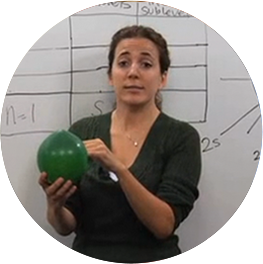
Rutger's University
M.Ed., Columbia Teachers College
肯dal founded an academic coaching company in Washington D.C. and teaches in local area schools. In her spare time she loves to explore new places.
Tips on identifying chemical versus physical changes. In class you learned about chemical and physical changes and you know the definitions above which are; chemical change is a process that involves one or more substances changing into new substances. And physical changes are changes that alter a substance without changing its chemical composition.
In class you’re most likely going to have to identify different changes and categorize them into chemical changes and physical changes. What are some key things that we can make sure that we don’t get these questions wrong? These are pretty easy, we’re going to make sure that we get them right.
There are some key words that you’re going to see of chemical changes. Cooking; anything you cook, you’re changing it chemically. Anything you’re putting electricity, anything going through fire, anything burning, anything dealing with heat or burning or fire are all chemical changes. The question we want to ask ourselves when we’re dealing with these types of changes and categorizing them are; so you’re going to ask yourself, can I get my original material back? That is the big question.
For example if I were talking about eggs and that you’re cooking eggs, you’re cooking, here is a key word that should dig in your head. That is chemical, but if you’re cooking an egg, can you get that egg back, after you’ve cooked it? No. you can’t. It’s an egg, yes, we call it an egg but it’s not the same egg we started with. Its proteins changed as we cooked it.
If we burned something, can we get the original substance back? No. Once you burn something, it’s burned, it’s changes, it’s something different now. So anytime you hear these words, dealing with heat or fire or anything like that, in your head, you should be thinking that’s instantly a chemical change, and there’s a reaction that’s happening.
Some key words for physical changes, I want you to understand that all these changes are physical. Going from solid to a liquid, let’s say you have ice and it melts. It’s still H2O. Its H2O in the solid form and H2O again in it’s liquid from. You can get that substance back, the original substance, juts by freezing it. No big deal.
So with all these changes are physical and anything dealing with density, physical. Dissolving, let’s say you’re dealing with dissolving salt into water, are you able to get that original salt back after it’s dissolved? Sure you can, you just boil off the water, which is a physical change, boiling is physical, and you get you’re original salt back. So that’s not changing it at all. Mixing, anytime you mix something, you can get that original substance back. But let’s say you mixed iron shavings with sand, how can you get those iron shavings back? Well you just use the physical property of mag-...